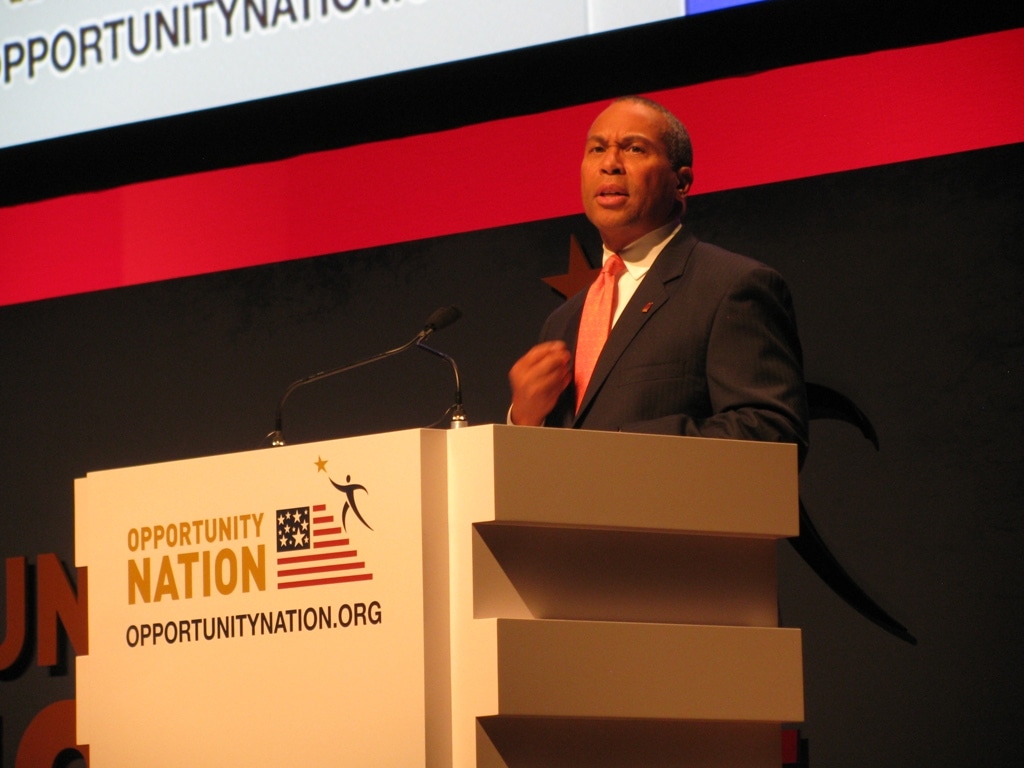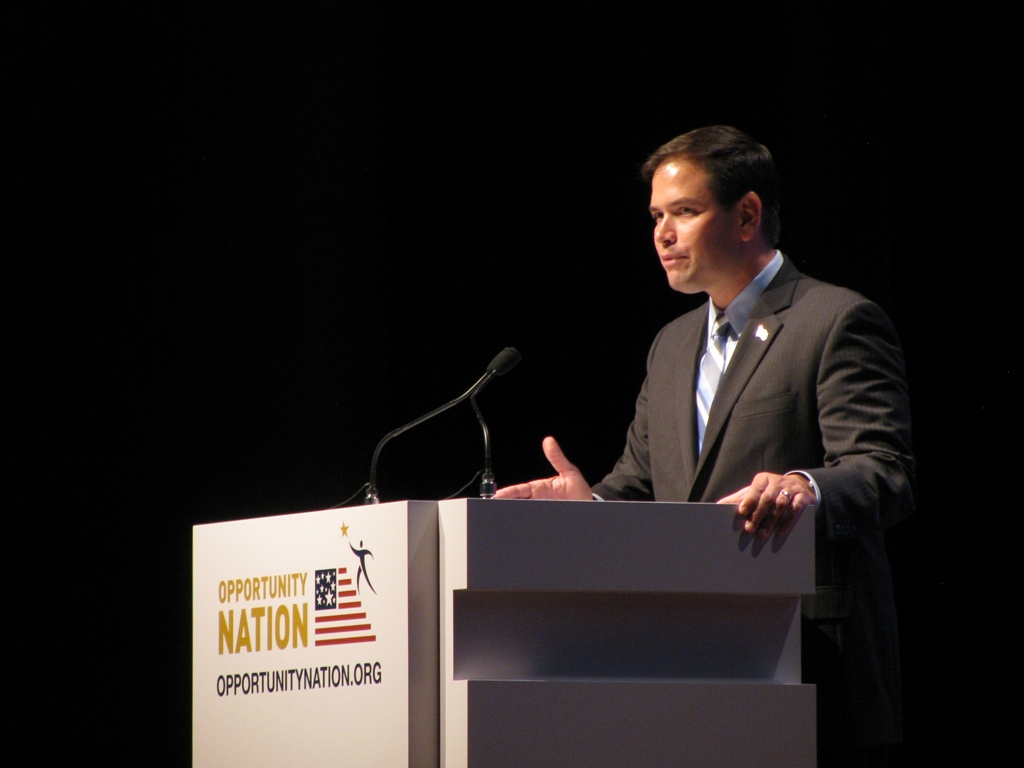
The purpose of the Opportunity Nation Summit this year was twofold: to discuss Opportunity Nation’s eight-point Shared Plan of action, which calls on the public and private sectors to join forces in helping disconnected young adults succeed; and to release the second annual Opportunity Index – a measure that gives a letter grade to nearly every county in the country as a way to illustrate how much opportunity is available for youth based on where they are from.
Among the Summit’s noted speakers, media personalities Arianna Huffington and Judy Woodruff participated in the conversation, as well as singer and actress Jordin Sparks, a previous winner of American Idol. Summit attendees also heard from John Bridgeland, CEO of Civic Enterprises and former Director of the White House Domestic Policy Council and USA Freedom Council under President George W. Bush (and a big friend to The Corps Network), as well as Melody Barnes, chair of The Aspen Institute and former Director of the White House Domestic Policy Council under President Barack Obama. Youth participants also heard from Roberta Shields, president of the Ludacris Foundation and mother of the rapper and actor Chris “Ludacris” Bridges.
Representatives from several businesses and educational institutions dedicated to giving disconnected youth job experience and expanded opportunities also spoke at the Summit. Kerry Sullivan and Andrew Pleper, who both spoke on behalf of Bank of America, encouraged leaders and businesses to not develop a short attention span about the issues discussed at the Summit. Eduardo Padron, president of Miami Dade College, spoke about how the key to ending poverty in the 21st century would be affordable, accessible college.
Lawmakers speaking at the Summit included a number of United States Senators as well as Governor Deval Patrick of Massachusetts. Each leader had a slightly different take on what our country must do in order to make America more prosperous and make opportunities more available to those facing economic and educational barriers.
 Gov. Patrick talked about how even though he grew up in extreme poverty and frequently had to sleep on the floor, the concern and caring of his neighbors always helped him feel secure and happy. Patrick encouraged people to think of themselves as charges for every child in their community, not just their biological children. He stressed the need to make all children feel worthy from a young age. Patrick also spoke about the need to not limit government’s role in funding and making programs to help the disadvantaged.
Gov. Patrick talked about how even though he grew up in extreme poverty and frequently had to sleep on the floor, the concern and caring of his neighbors always helped him feel secure and happy. Patrick encouraged people to think of themselves as charges for every child in their community, not just their biological children. He stressed the need to make all children feel worthy from a young age. Patrick also spoke about the need to not limit government’s role in funding and making programs to help the disadvantaged.
 Senator Marco Rubio of Florida discussed his frustration with how community colleges and career education are stigmatized in our country. Rubio spoke about the need to make Americans realize that the kinds of jobs that career training programs prepare people for – such as nursing, plumbing and auto repair – are quality jobs that are always in demand. Rubio also discussed his support for the “Right to know before you go” legislation that would make it necessary for colleges to tell students all the costs upfront to avoid burying them in mountains of debt.
Senator Marco Rubio of Florida discussed his frustration with how community colleges and career education are stigmatized in our country. Rubio spoke about the need to make Americans realize that the kinds of jobs that career training programs prepare people for – such as nursing, plumbing and auto repair – are quality jobs that are always in demand. Rubio also discussed his support for the “Right to know before you go” legislation that would make it necessary for colleges to tell students all the costs upfront to avoid burying them in mountains of debt.
Senators Christopher Coons of Delaware and Tom Harkin of Iowa also spoke at the Summit. Coons shared his thoughts on how college planning should be made available to all children, especially poor children, from a very young age, and Harkin spoke about how America is not at its full potential when we do not look at all the things disabled individuals can do.





































































